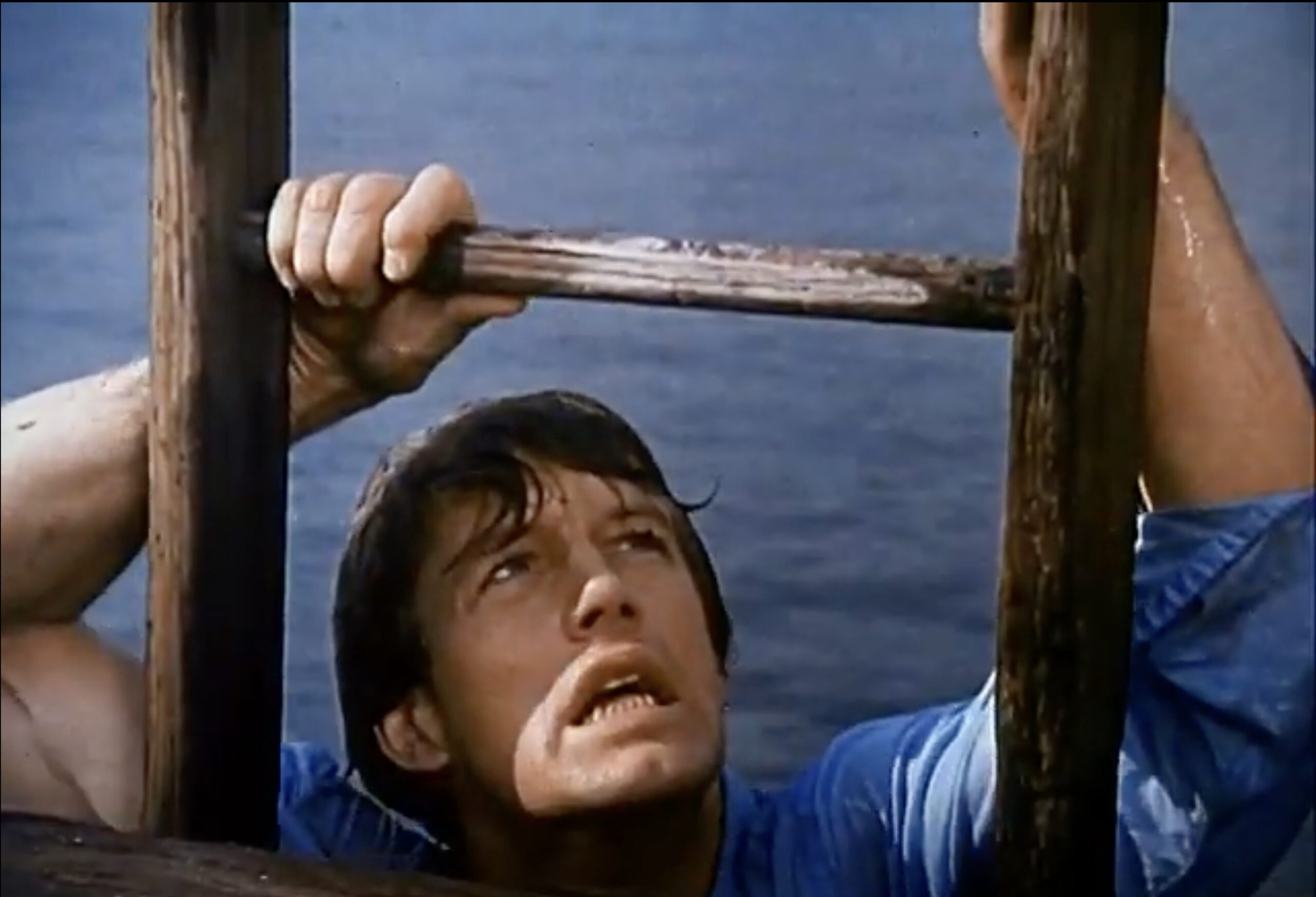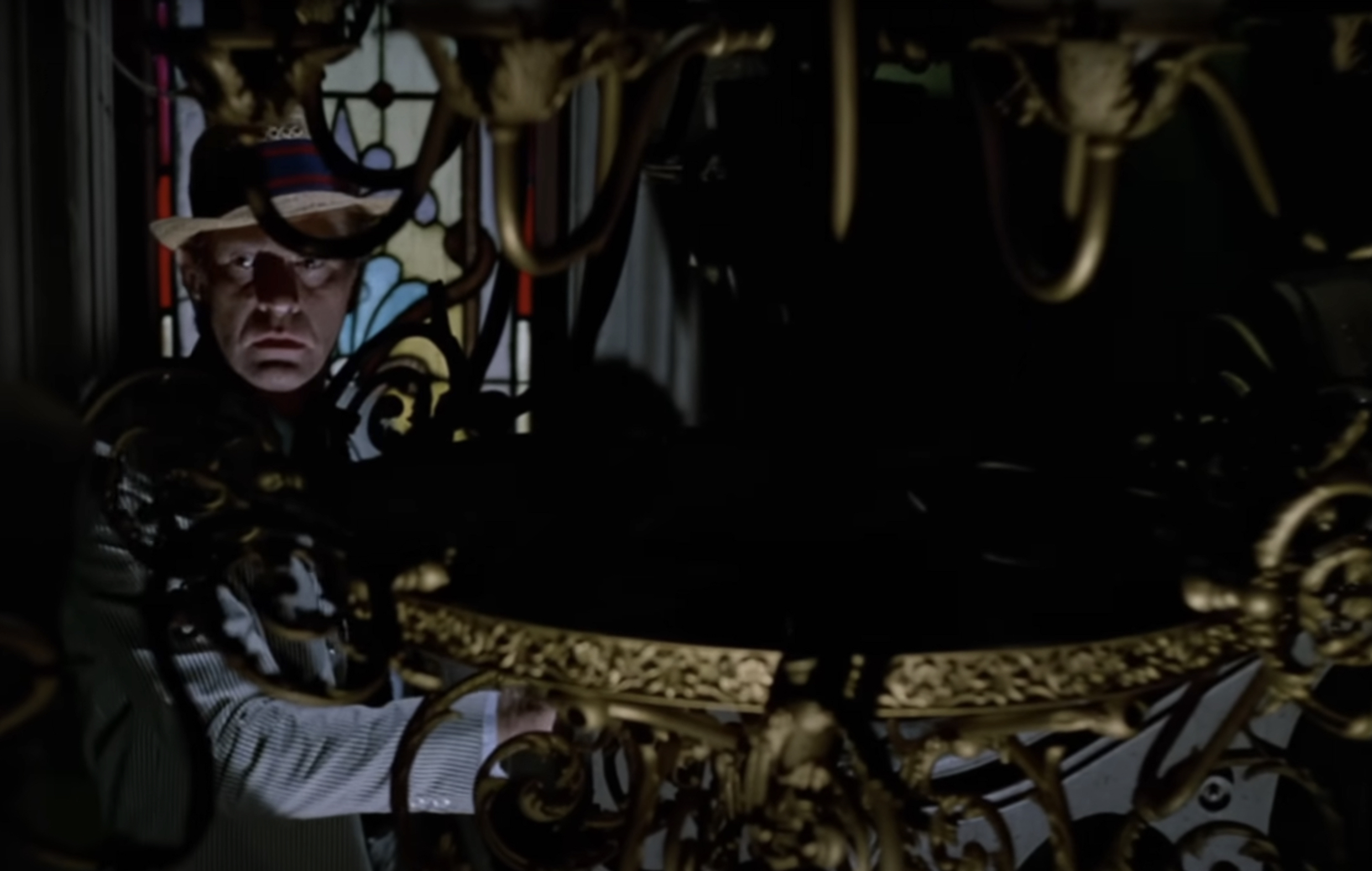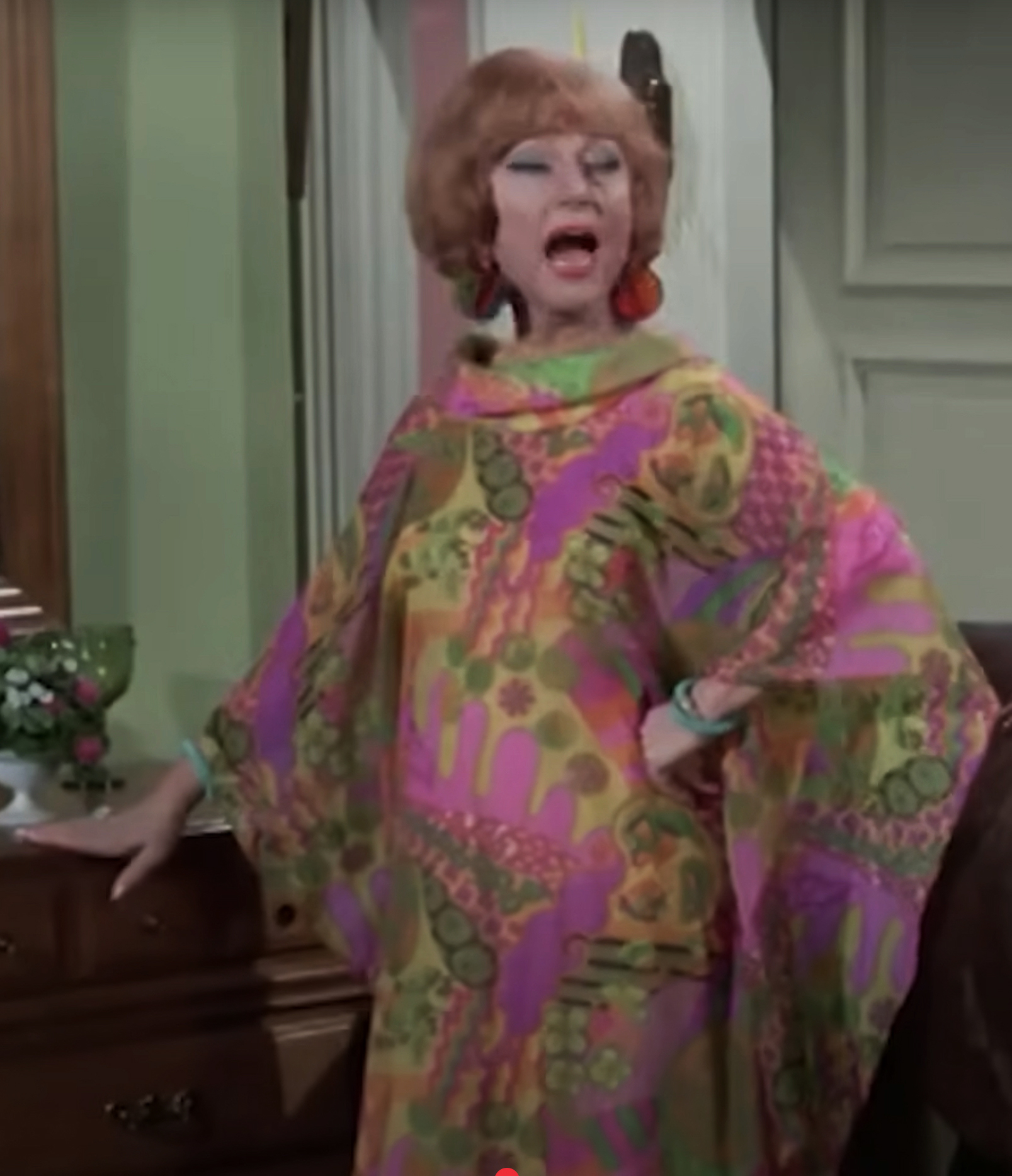OFF-TOPIC (72)
By:
August 17, 2025
Off-Topic brings you over-the-transom, on-tangent essays, dialogues and subjective scholarship on an occasional, impulsive basis. This episode, an essay-salad in which old ledgers are settled, and I make a deleted scene…
We cherish what we do not have — alternate endings, unreleased director’s cuts, unpublished fragments from famous authors, and so much more of what isn’t there. I curated a whole series of what historically didn’t quite happen with SWERVE Your Enthusiasm, but roads untaken are a booming sideline of any creative endeavor. So it is that three separate Enthusiasm series supply us with essays that weren’t published… til now.
The first comes thanks to my rejecting my own essay from another of my series; the second from a desire to finally complete the set for the one Enthusiasm series I never contributed to; and the third from a duplicate entry I just couldn’t help myself from drafting for a series I’d already submitted to.

DEFER Your Enthusiasm, which ran from April-June of this year, surveyed passions put off by obstinate choice or not discovered until long after posterity’s first (or third) promotional cycle. It’s only fitting that one entry got left for much later… my initial essay on a scarce TV series about ephemeral memories, ditched in favor of a confessional on my late-life embrace of canine culture. That one was more heartfelt, but this one might be worth a second thought…
I was born into a timeline of might-have-beens, from the stolen golden-age of JFK’s supposed Camelot, to the one copy of my dad’s manuscript novel “lost by movers in a coffee table,” to the favorite show he often talked about and no one saw, Coronet Blue. It was an era when whole ways of life seemed to sink like Atlantis, among them the assured, contented America I’d just missed, being born in the mid-1960s; and media was as local and unpredictable as weather, with TV schedules different in every town and subject to individual stations’ sporadically available content and programming whim from week to week. In this cultural atmosphere, the feeling that anything could go missing mysteriously, and the impulse to build a legend around it, were strong.
Coronet Blue was both based in this attitude and inadvertently came to embody it. Elusive memory was its theme, and it ended up being more referred to than seen. A man is fished out of New York Harbor amnesiac and almost drowned, taking the name “Michael Alden” and remembering nothing but the words “Coronet Blue,” though neither he nor we know what they mean. However in the series’ first sequence we have seen him be beaten, stripped of ID, thrown off a ship and presumed dead by… gangsters? spies? Succession-style rivals? — we and he ever find out, but they keep sending mysterious gunmen that he eludes while chasing down leads to who he is and what it’s all about.
The sense of ever-suspended resolution (and delayed appreciation) is baked into this show: its single season was shelved for two years before it was ever broadcast; it aired sporadically and out-of-sequence with two eps never even shown; and it then haunted a cult fanbase who passed their obsession on to a generation who only knew about it secondhand until somebody invented YouTube.
It feels like something you can only come late to, but circles in place in a way you can always join. We hear a lot about Michael following leads across the country, but (for budgetary reasons) mostly see him roaming around New York. The clues he does discover (news photos or artworks he seems to recognize his face in; a psychic who connects him to a memory fragment; suspicious figures who claim to have info to sell) trail off or are dropped from the storyline as soon as they arise, and no matter what new friends he makes or love-interests he meets, the demands of man-on-the-run fiction require him to abruptly abandon them in the final few minutes, for a strange kind of serially repressed recovery.
Binging the show, you recognize the same set used for three apartments (and another used for two art studios), like a recurring dream template; episodes 8, 9 and 10 genre-flip from comedy to gothic horror to sci-fi with the same subconscious logic. The coffeehouse where Michael gets a job washing dishes is always crowded in the middle of the day with hipsters dancing to the ambient soundtrack between people’s tables or weirdly huddled around a folksinger blocking the door, no stage or backroom or dancefloor, like the illogical juxtapositions of an Ai filmclip program, like the concept of someone who’s never really been there. Is the whole series Michael’s delusion? Is he, as the Sopranos-finale theory goes, “already dead,” floating ghostlike amongst the last places he was tied to?
I’ve waited this long, and I can keep on almost liking, and writing my own ending and backstory to, this strangely compelling show, for as long as it stays unfinished.

The reasons I didn’t contribute to KLUTE Your Enthusiasm (2017) have been lost to history, and for a long time I did wonder what I would have written about… then I realized that a fav pop-culture milestone of mine fits into curator Josh Glenn’s iconically eccentric decade-counting, the “late ’60s” lasting until 1974; that’s more than enough time for a 1972 horror procedural that ticks the political-suspicion and oddball-ensemble boxes of the “neo-noir” genre that the series homaged. That classic is honored here in a brand-new essay only eight years too late…
Noir is never about the hero. He (usually “he,” the remote, all-business dad figure) is there to be the plumbline of justice or reason, around which the rest of our eccentricities and flaws careen in their crashing orbits. Noir is about all those other characters (quirky informants, cranky vendors, starcrossed victims, conflicted bureaucrats); the hero’s there to make the world safe for messy humanity, so his own identity is almost wiped clean.
But Carl Kolchak is one of those messy characters, a bursting suitcase of personality; it’s the first of many rules he breaks. We know him as transgressor and troublemaker at first sight, the reporter who asks too many (that is, any) questions and has been fired from multiple cities’ newspapers by the time The Night Stalker finds him dead-ended at a Las Vegas rag and dreaming of New York.
Best remembered as a shortlived cult TV series but originally the most-watched TV movie in history to that point (Jan. 11, 1972) and released theatrically abroad, The Night Stalker sets the pattern of the paranoia and outrage of the time (atrocities in Vietnam, illegality in the highest offices) being processed as literal monsters preying on the population with the powers-that-be not admitting to it.
In this case, an old-country vampire taking up shop in Vegas’ all-night world, menacing the disposable lives of its female workforce and breaking the necks and egos of male security staff and local cops who get in his way. Kolchak sets out to place lives above official reputations and tourist-bureau concerns, under a cloud of cover-up and threats. As he would week after week (for as long as the show lasted, less than a season) he ends up the Final Middle-Aged Guy, with the monster vanquished (maybe? for now?) but the truth and Kolchak’s experience erased.
Actor Darrin McGavin saw through creator Jeff Rice’s camouflage, remarking that “If you take the secrets that go on in the world in which we live, we are surrounded by mysteries that we don’t know how to combat or deal with. … Kolchak really wants to get in there and expose all of the true monsters that are affecting our lives.” Noir is consumed with things that aren’t as they seem, but that is a matter of conscious concealment; the genre doesn’t really do metaphor, and neither did late-’60s/early-’70s TV. This may have been what Kolchak the character and Kolchak the show were ultimately up against; he’s not just a truthteller and an exposer of secrets, he’s the one person walking clear-eyed through metaphor, the grotesquery of what he testifies being the only actually rational interpretation of what’s going on around and above us.
As for the few of us who swore by the show (and the many since who have made it a mainstream classic, including X-Files creator Chris Carter), maybe we were so eager to catch the elite and the establishment at anything we could, make sure something was exposed, that we’d settle even if what was exposed was a horror we have no remedy for. Or maybe we knew we were entering an era of drowning information, far beyond the scope of Kolchak’s single candle, and we were already longing for a time when something, anything, could remain hidden. Either way, The Night Stalker’s noir is not about the tension of what stays in the shadows. It’s about the terror of what’s always been right in front of your eyes.

ENDORA Your Enthusiasm, still running as this column appears and focusing on “villains” we love to root for as curated by Heather Quinlan, was initially going to be called “HASKELL Your Enthusiasm,” after the beloved backstabber Eddie Haskell on the vintage Leave It to Beaver TV show; “Endora” makes a much better title and an even more definitive subject, the malevolently meddling and schmatte-fabulous mother-in-law on Bewitched. It’s sheer coincidence that I had been assigned Haskell, pure fate that Endora should get the writer born to do her justice, and mere compulsion that I was so taken by the perfection of Endora as the series’ standard-bearer that I was moved to write my own, unpublishable entry on the spot (completed before seeing Lynn Peril’s, and offered here because its subject taught me a really bad sense of boundaries…)
I grew up in a family of brook-no-bullshit Jewish mothers and aunts, and to my sister, mom and me, Endora was the hero of Bewitched. Mortal advertising exec Darrin Stephens, married into a family of witches, doesn’t approve of his wife Samantha’s powers, so why should her mom Endora approve of him? Oceans of ink have no-doubt flowed about this show’s transitional position in pop feminism, the way Darrin tries to stifle who Sam is (not noticing the significance of her “masculine” nickname), and the many ways she subtly resists by using her powers anyway (and employs her natural wits to come up with ideas for his job and let him think they’re his).
But we weren’t viewing it through that political a lens as kids (at least beyond how the politics of it were the air we breathed in the mid-to-late 1960s). We were thinking of the sheer license that Endora endorsed, by conjuring toys for baby Tabitha or teleporting over to Paris for lunch; she was our surrogate indulgent grandmother. If there’s fun to be had, why not have it; if there’s a self to be expressed, who would hold that back?
Endora was being her best self, unique on 1960s TV as being not exactly married to (and long separated from) Sam’s dad Maurice; as a supernatural being she could openly experience this very real (and then burgeoning) lifestyle, in the same way Star Trek could show “diversity” of alien species and the X-Men could be coded as gay long before any of these things could just be shown out loud.
Endora was a relative who could literally pop in at will; she would say what was on her mind and point out what’s obvious in ways we were taught not to do; of all the models we were offered, she was the reason to grow up. She’s Darrin’s elder too, which he also can’t stand. And getting him rattled with an ease that requires no magic powers, she teaches lessons he misses completely. A running gag is her calling him every name but his own, Darwin, Durwood, etc.; his identity is too rigidly fixed to let himself in on the joke, but he could take this hint and embrace the possibilities of who else he might be.
Between seasons 5 and 6, they cast a new actor in Darrin’s role. Dick York had been a master of flustered humiliation; Dick Sargent had more of a pissed-off resistance and sexy self-assurance (if still being an, um, dickish alpha and the rightful butt of jokes). Endora had often tried to humble Darrin by placing spells on him or turning him into various animals — did she change him into Dick Sargent, to gift her daughter with a mild upgrade that only she and we notice? Mother knows best, and sometimes, even this mother doesn’t tell.
MORE POSTS by ADAM McGOVERN: OFF-TOPIC (2019–2025 monthly) | textshow (2018 quarterly) | PANEL ZERO (comics-related Q&As, 2018 monthly) | THIS: (2016–2017 weekly) | PEOPLE YOU MEET IN HELL, a 5-part series about characters in McGovern’s and Paolo Leandri’s comic Nightworld | Two IDORU JONES comics by McGovern and Paolo Leandri | BOWIEOLOGY: Celebrating 50 years of Bowie | ODD ABSURDUM: How Felix invented the 21st century self | KOJAK YOUR ENTHUSIASM: FAWLTY TOWERS | KICK YOUR ENTHUSIASM: JACKIE McGEE | NERD YOUR ENTHUSIASM: JOAN SEMMEL | SWERVE YOUR ENTHUSIASM: INTRO and THE LEON SUITES | FIVE-O YOUR ENTHUSIASM: JULIA | FERB YOUR ENTHUSIASM: KIMBA THE WHITE LION | CARBONA YOUR ENTHUSIASM: WASHINGTON BULLETS | KLAATU YOU: SILENT RUNNING | CONVOY YOUR ENTHUSIASM: QUINTET | TUBE YOUR ENTHUSIASM: HIGHWAY PATROL | #SQUADGOALS: KAMANDI’S FAMILY | QUIRK YOUR ENTHUSIASM: LUCKY NUMBER | CROM YOUR ENTHUSIASM: JIREL OF JOIRY | KERN YOUR ENTHUSIASM: Data 70 | HERC YOUR ENTHUSIASM: “Freedom” | KIRK YOUR ENTHUSIASM: Captain Camelot | KIRB YOUR ENTHUSIASM: Full Fathom Five | A 5-part series on Jack Kirby’s Fourth World mythos | Reviews of Annie Nocenti’s comics Katana, Catwoman, Klarion, and Green Arrow | The curated series FANCHILD | To see all of Adam’s posts, including HiLo Hero items on Lilli Carré, Judy Garland, Wally Wood, and others: CLICK HERE
